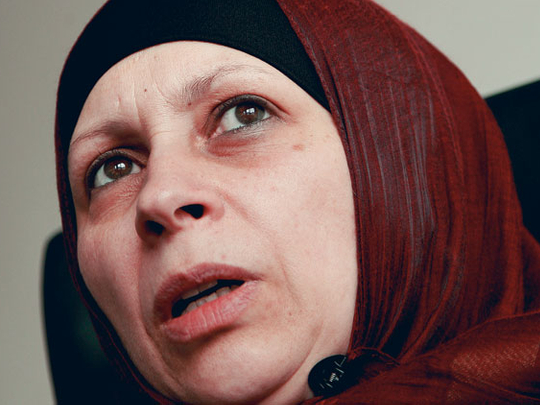
Antwerp: Belgium soon may be the first European nation to outlaw the burqa and other Islamic garb even as France and the Netherlands are seen moving in the same direction.
"There is all-party public support for this," says Leen Dierick, a conservative member of the Belgian parliament's interior affairs committee that unanimously backed the proposed ban on March 31. The initiative is expected to become law in July and would apply to all public places, including streets.
Swiss voters recently voted to ban the construction of new minarets. In recent years, both mosque and minaret construction projects in many European countries, including Sweden, France, Italy, Austria, Greece, Germany and Slovenia, have generated protests, some of them violent.
French President Nicolas Sarkozy favours a burqa ban, saying the veils compromise women's dignity. Unlike the Belgians or the Dutch — who see a clear and straightforward public security issue — the French are struggling with the constitutionality of outlawing a religious dress code.
"The point is public security, the need to show one's face in public. Not religious freedom," says Dierick.
The proposed Belgian ban partly underscores how populist politicians across Europe are making a big imprint on attitudes and policies toward immigrants and minorities, especially Muslims.
Belgian lawmaker Filip Dewinter says mainstream politicians back a ban on burqa-type attire for fear of losing more ground to his far-right Flemish Interest party — a fringe factor 15 years ago but who today hold 17 of the 150 parliamentary seats.
"We were the first to propose a burqa ban," says Dewinter. "Now the parliament votes for a ban [drafted by a] traditional government party. Whatever! It's the outcome that counts."
In the Netherlands, polls indicate that Geert Wilders' anti-Islam Freedom Party could nearly triple its presence in parliament and win 25 or so seats in June elections, up from nine today.
Although their ranks are growing, Muslims make up only small minorities in Western Europe. France has the largest Muslim population of an estimated 5 million, or 7.5 per cent of the population, followed by the Netherlands with 6 per cent, Germany with 5 per cent, Austria with 4.2 per cent, Belgium with 3 per cent and Britain with 2.7 per cent, according to a 2009 study of the Pew Research Centre in Washington.
There is broad support in the Dutch parliament to ban face-obscuring clothing except if required by law for safety or health reasons. Talk of a ban is on hold, for now. Fewer than 500 women wear such outfits in the Netherlands, out of a population of 16.5 million.
France banned Muslim head scarves — as well as Jewish skullcaps and Christian crosses — from schools in 2004. President Nicolas Sarkozy says the burqa "is not welcome" in France.
Politicians in Germany, Spain and Italy have toyed with banning Islamic wear, but so far to no effect.
Isabelle Praile, vice-president of the Belgian Muslims Executive, says while a burqa ban targets very few women "it speaks to a fear of the other who is Muslim. This is Islamophobia".
To Muslims in Europe, she said, "the economy, the cost of living and decent housing" are more pressing issues that worrying about a burqa ban.












